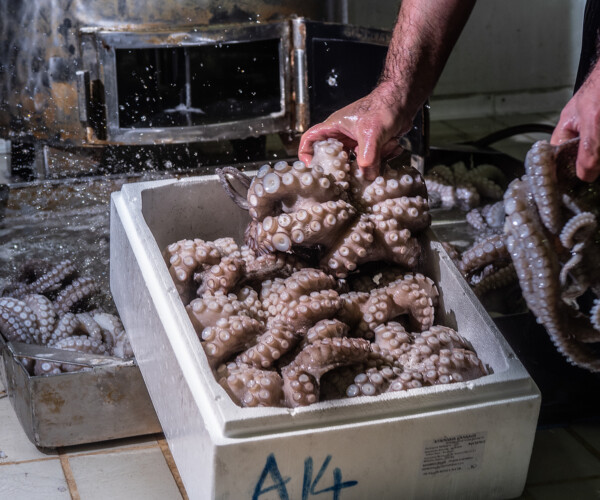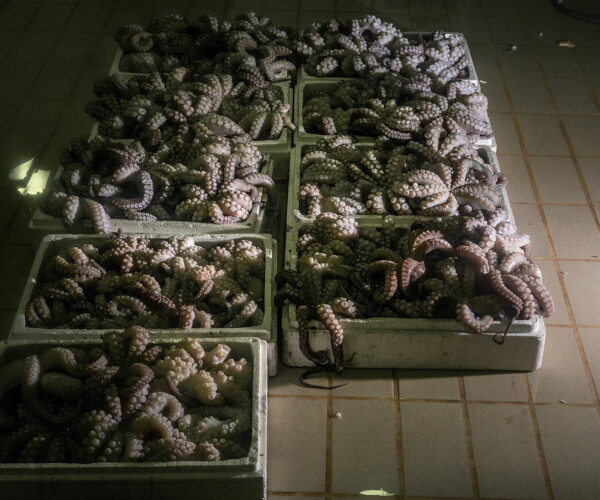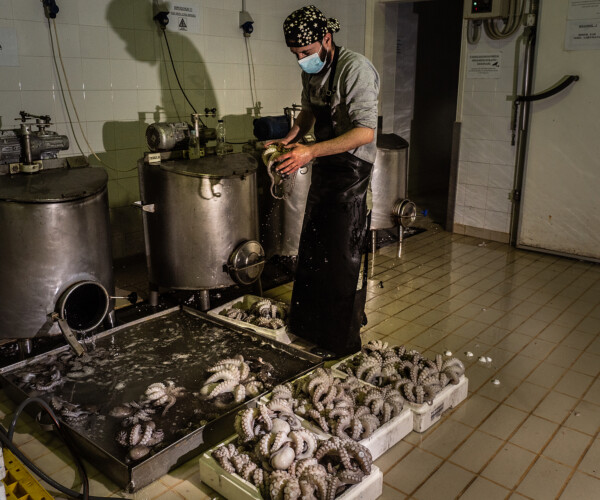“Imagine if we could go back in time to when we first started farming pigs and put an end to that practice then and there. Because pig farming would evolve exponentially into an industry that would kill (often brutally) 1.5 billion animals each year…Chances are, most of us would jump on that opportunity to rewind the clock. Now, we’re at this historic crossroads with octopus farming. While certain countries and companies race to open the first octopus farms, scientists, advocates and policy-makers are pursuing action to ban this practice and protect these sentient creatures from the cruel world of factory farming.” – We Animals Media
Say no to industrial octopus farming
As companies around the world have begun to explore industrial-scale octopus (and other cephalopod) farming, a new official federal e-petition aims to ban the practice.
The federal e-petition to say no to the factory farming of these intelligent, behaviourally complex and sensitive animals is now closed.
Important: After you sign the petition, be sure to check your email and click the confirmation link to ensure your signature is counted.
Photo: A Hawaiian day octopus observes visitors during a tour at Kanaloa Octopus Farm on the Big Island of Hawaii. The facility confines wild-caught octopuses alone in small tanks to perform breeding experiments on them for the octopus aquaculture industry. Kailua-Kona, Hawaii, USA, 2022. Laura Lee Cascada / The Every Animal Project / We Animals Media

Learn more
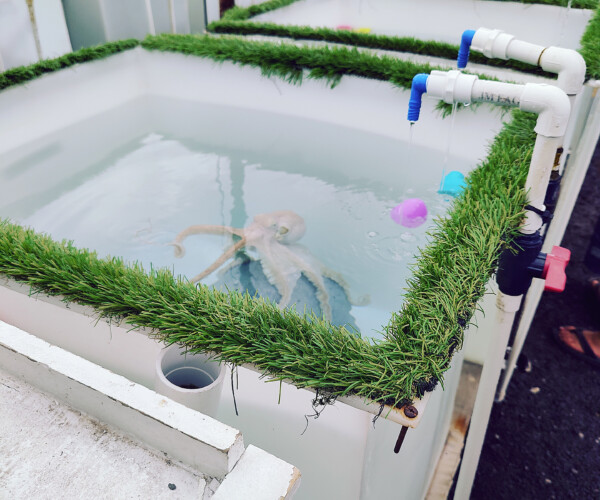
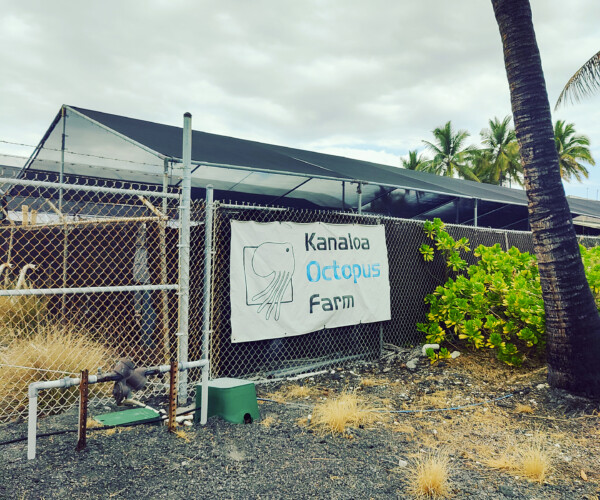
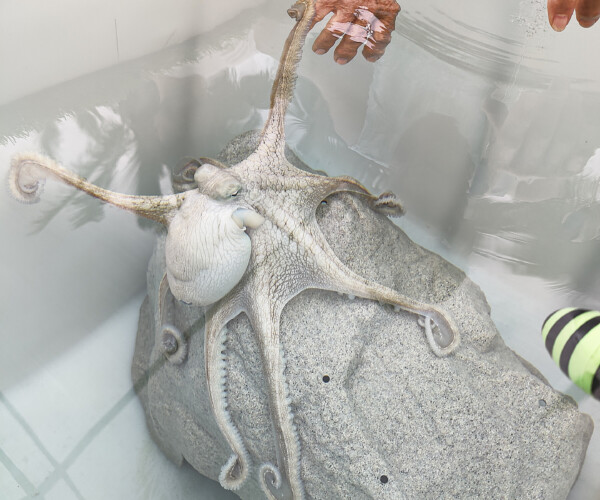
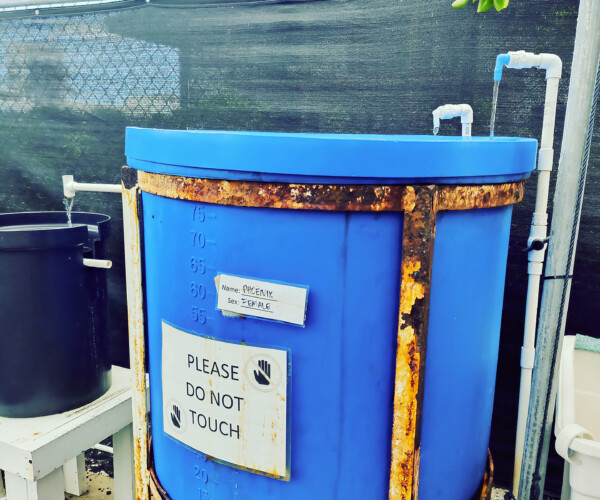
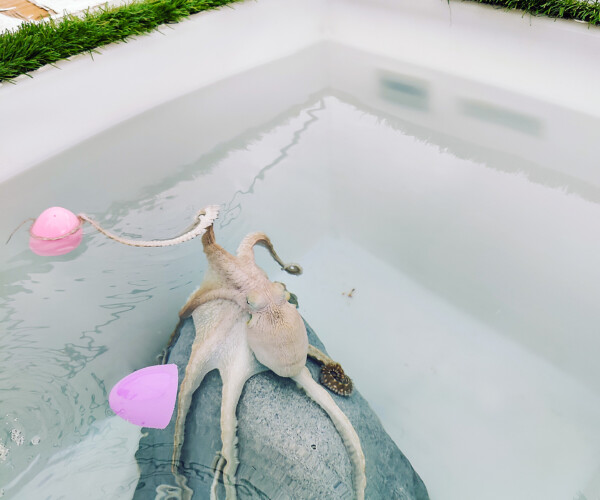
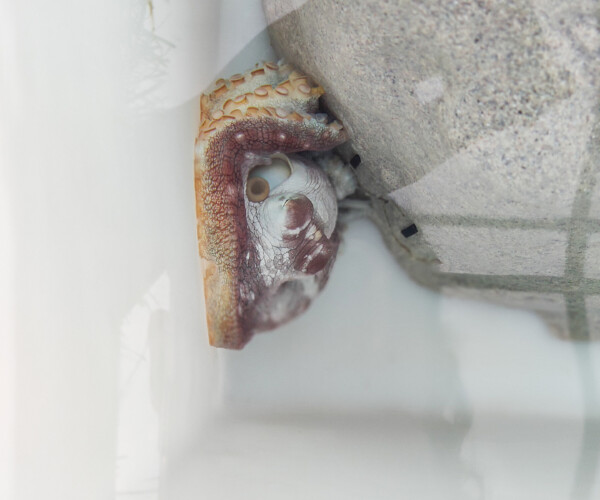
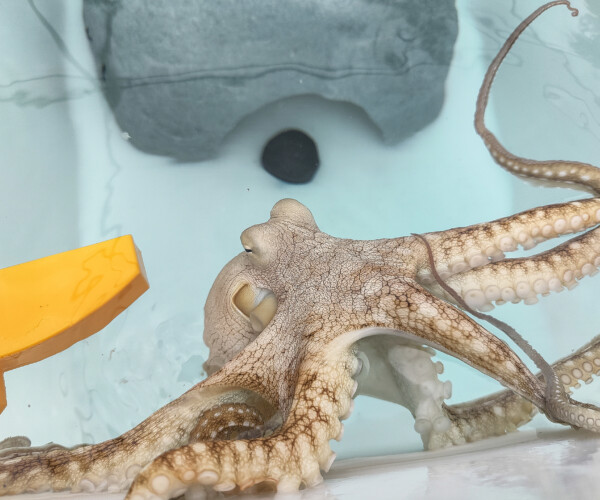
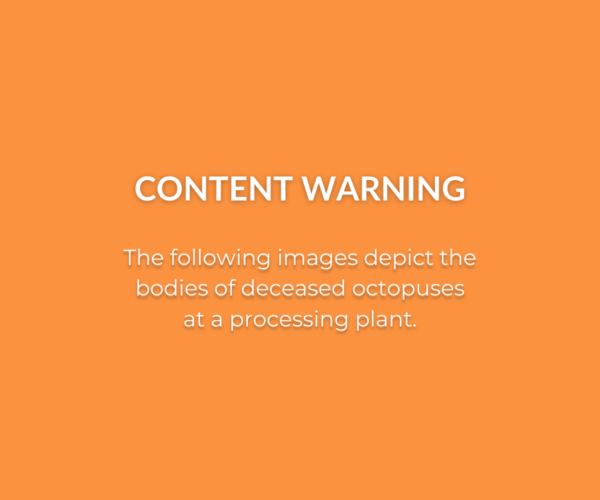
Photos of Kanaloa Octopus Farm: Kailua-Kona, Hawaii, USA, 2022; Laura Lee Cascada / The Every Animal Project / We Animals Media.
Photos of processing plant: Keratsini, Greece, 2020; Selene Magnolia / We Animals Media.
Anyone who has seen the award-winning documentary “My Octopus Teacher” can appreciate how smart, curious and sensitive octopuses are. They can recognise individuals outside of their own species, including humans. Field studies have recorded them engaging in tool-using behaviour in the wild and they have also exhibited problem-solving skills, including navigating mazes and solving puzzles.
Octopuses are typically solitary, wild animals, making them particularly ill-suited to being raised in large numbers on industrial farms. Research also demonstrates that octopuses and other cephalopods have complex nervous systems and the ability to experience pain and distress – key hallmarks of sentience.
Industrial octopus farming will also increase unsustainable pressure on wild fish populations, as the industry will require large amounts of fishmeal and fish oil products to feed farmed octopuses.
All of this makes confining these animals in crowded, barren industrial farms especially concerning. Sign the petition calling on the Canadian government to take a stand against the farming of octopuses and other cephalopods.
Advocates introduce federal e-petition
The petition was introduced by the Montreal SPCA and Green Party leader Elizabeth May, and supported by the Vancouver Humane Society, Animal Justice, BC SPCA, Canadian Coalition for Farm Animals, Humane Canada, Last Chance for Animals and Winnipeg Humane Society. Once the petition closes, it will be presented in the House of Commons and the federal government will respond within 45 days of it being presented.

